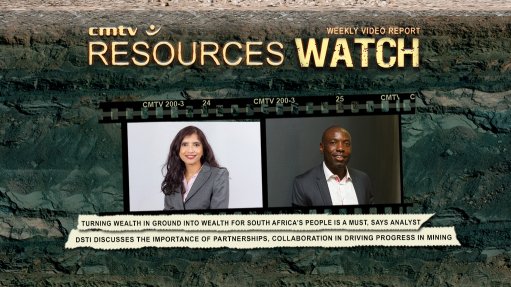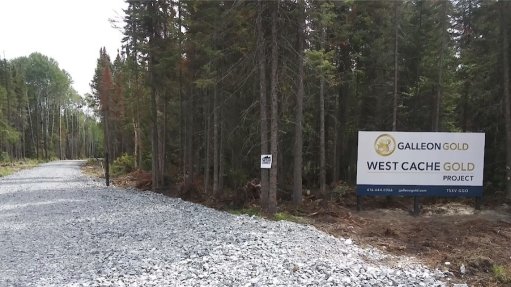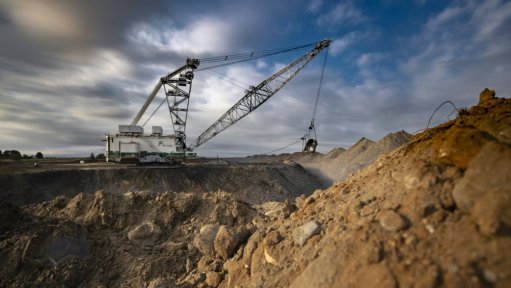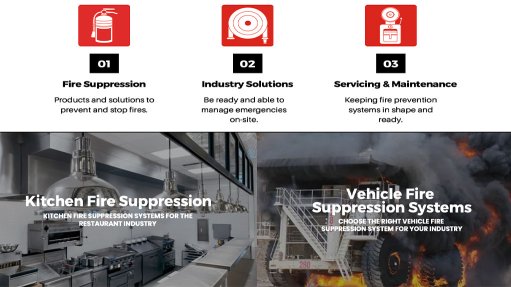On-The-Air (26/02/2021)
Every Friday, SAfm’s radio anchor Sakina Kamwendo speaks to Martin Creamer, publishing editor of Engineering News & Mining Weekly. Reported here is this Friday’s At the Coalface transcript:
Kamwendo: Great news is that the South African mining industry is planning a test mine to put new Fourth Industrial Revolution (4IR) technologies through their paces.
Creamer: Yes, 4IR is becoming pervasive and it provides a lot of opportunities to improve our productivity, competitiveness and make us do much better in mining, which has really not moved with technology. It is really still in old-style mode that goes back 100 years in many instances. What people want to do now, with the Minerals Council South Africa, is create a test mine.
They looked at two mines and they now have got a preferred mine and a feasibility study is being done on all the costings, so that they can try out all the new technologies, which are going to be people-centric. People centricity is one of the things that they are insisting upon so that this transition to advanced new technology will people-centred.
The Fourth Industrial Revolution or 4IR has all the hallmarks of being able to uplift the entire mining industry, particularly in the underground mining context, at a time when many of the world’s mines are having to go underground. We are used to underground mining in South Africa and have got great expertise in underground mining. A lot of the mines elsewhere are opencast now but will have to go underground in time. But because of the whole climate change situation, opencast mining is frowned upon and 4IR could really get us ahead of the world now in underground mining, which could mean that our suppliers can sell this globally, which will be a great benefit to South Africa.
Kamwendo: Billions of rands are being invested in new mining projects to keep up with the emerging commodity super cycle.
Creamer: Another commodity super cycle is emerging. You can see the prices of mined commodities flying high and a lot of the metals and minerals that we mine could be in short supply. All the projections are that there is going to be even more demand and the pressure is really going to be on supply. You see projects coming through fairly quickly now to meet demand projections.
We see that R10-billion worth of projects are in the final stage of approval by platinum mining company Impala Platinum. The first is a R5.7-billion project at the Two Rivers mine, in Limpopo, near Steelpoort, and then there is a R4,3-billion expansion project planned by Impala Platinum in Zimbabwe. More metals need to be mined because of the demand that is coming through because of the need to mitigate climate change.
We also see now that Kumba Iron Ore is putting R3.6-billion into a plant at its operation in Sishen, in the Northern Cape, and we know that there has been a whole series of other multibillion rand announcements on mining advances, so that projected supply can start moving closer to projected demand. The fear is that with the super cycle we could fall behind in supply and nobody wants to that, because then there could be price spikes.
Once there are price spikes in metals people start looking for alternative sand that is never good. So, it is appropriate that mining companies are starting to spend money early to get more ounces out of the ground and with the Impala Platinum, they are looking at 360 000 additional ounces coming through from these two projects in the next four or five years.
Kamwendo: Mining companies are making major investments in renewable energy to beat the electricity crisis and ward off climate change.
Creamer: Renewable energy projects are just sweeping the mining world at the moment. We have Gold Fields now going ahead with a 40 MW renewable energy, solar power project, at its South Deep mine.
They have been waiting for this for a long time and now Nersa has come through with approval. We have also got Anglo American Platinum, in Limpopo, looking at 75 MW of initial renewable energy, also solar power. The solar power will be used to produce hydrogen for the world’s biggest hydrogen fuel cell truck, now under development. They are looking to go to 320 MW eventually so that they will have a lot of green hydrogen for mobility and potentially also the processing of the ore they mine.
Then, we’ve got Harmony Gold talking about 10 MW right away, followed by another 20 MW to take the total first to 30 MW and then, because the President has promised that the threshold for these operations that are self- generated will probably go to 50 MW, some are already looking at 50 MW. We know that there are a lot of smaller mines at 10 MW level. Solar power in particular is very pervasive and they are taking the pressure off Eskom, but they also making sure that they can get clean green energy into the system, which is so important to hold off on climate change. We see the whole world now turning towards making sure that this climate change does not happen. I noticed that the former Prime Minister of Britain David Cameron has flung himself right into renewable energy effort for fragile economies, he wants to help them with renewable energy, a lot of them in Africa.
Then there is also a former Prime Minister in Australia, Malcolm Turnbull, who has gone headlong into the business of providing green hydrogen, which is on its way to becoming the new universal energy carrier. There’s a new world developing out there with a lot of great new opportunities for economic growth, which can be of major potential economic growth for South Africa.
Kamwendo: Thanks very much. Martin Creamer is publishing editor of Engineering News & Mining Weekly.
Article Enquiry
Email Article
Save Article
Feedback
To advertise email advertising@creamermedia.co.za or click here
Press Office
Announcements
What's On
Subscribe to improve your user experience...
Option 1 (equivalent of R125 a month):
Receive a weekly copy of Creamer Media's Engineering News & Mining Weekly magazine
(print copy for those in South Africa and e-magazine for those outside of South Africa)
Receive daily email newsletters
Access to full search results
Access archive of magazine back copies
Access to Projects in Progress
Access to ONE Research Report of your choice in PDF format
Option 2 (equivalent of R375 a month):
All benefits from Option 1
PLUS
Access to Creamer Media's Research Channel Africa for ALL Research Reports, in PDF format, on various industrial and mining sectors
including Electricity; Water; Energy Transition; Hydrogen; Roads, Rail and Ports; Coal; Gold; Platinum; Battery Metals; etc.
Already a subscriber?
Forgotten your password?
Receive weekly copy of Creamer Media's Engineering News & Mining Weekly magazine (print copy for those in South Africa and e-magazine for those outside of South Africa)
➕
Recieve daily email newsletters
➕
Access to full search results
➕
Access archive of magazine back copies
➕
Access to Projects in Progress
➕
Access to ONE Research Report of your choice in PDF format
RESEARCH CHANNEL AFRICA
R4500 (equivalent of R375 a month)
SUBSCRIBEAll benefits from Option 1
➕
Access to Creamer Media's Research Channel Africa for ALL Research Reports on various industrial and mining sectors, in PDF format, including on:
Electricity
➕
Water
➕
Energy Transition
➕
Hydrogen
➕
Roads, Rail and Ports
➕
Coal
➕
Gold
➕
Platinum
➕
Battery Metals
➕
etc.
Receive all benefits from Option 1 or Option 2 delivered to numerous people at your company
➕
Multiple User names and Passwords for simultaneous log-ins
➕
Intranet integration access to all in your organisation




















